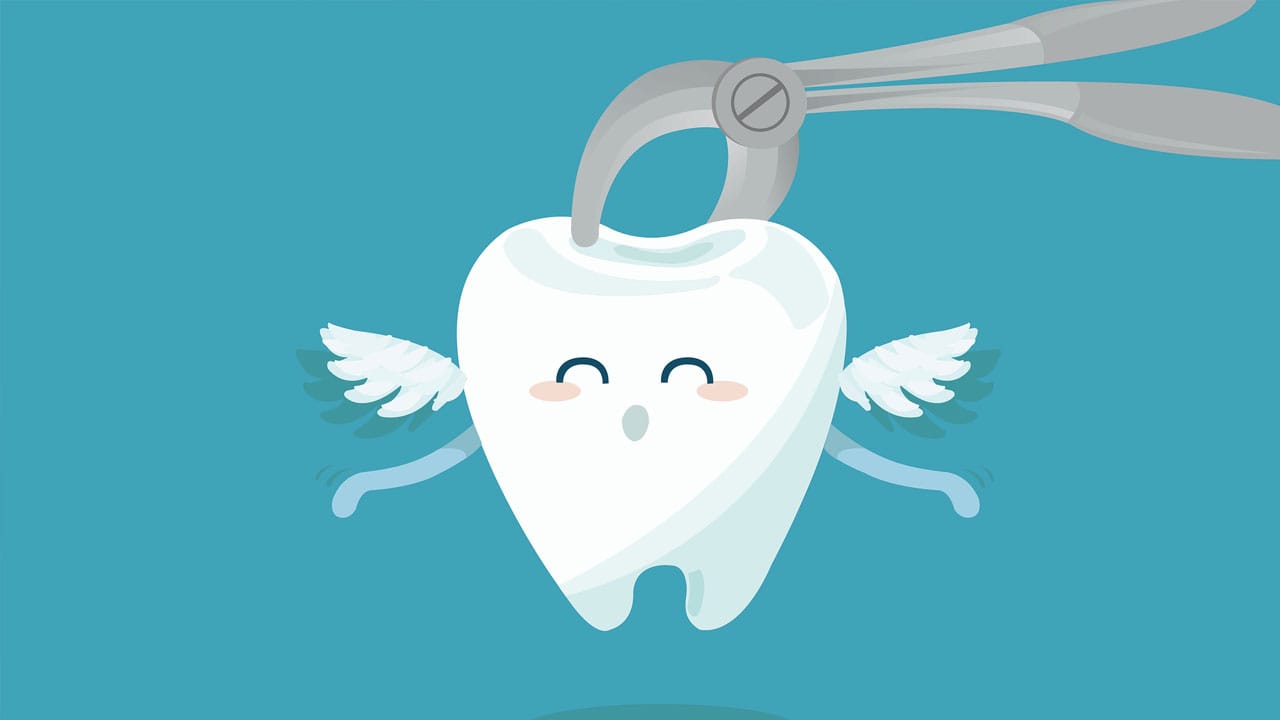
If you’re planning to have your wisdom teeth extracted, you may have heard a variety of methods for recovery and pain management. Your dentist will work with you to develop a treatment plan tailored to your unique needs.
During The Procedure
During your wisdom teeth removal, your dentist will provide a numbing solution, a local anesthesia, and may also offer a general sedative for the procedure. This often helps patients control their anxiety and “sleep” through the procedure, but requires the accompaniment of a friend or family member to drive you home.
If your wisdom teeth are impacted, or stuck behind your gums, your dentist will make a small incision through which to extract your teeth. Often, because of the size of wisdom teeth, your dentist will break apart the tooth within your mouth and remove the pieces. Then, he or she will use dissolvable stitches to close the wound, which helps prevent infection and stem the bleeding.
The First 24 Hours
After your procedure, your dentist will recommend that you get plenty of rest with little exertion—the day after your procedure is not the time to hit the gym. It is, however, a great excuse to stick to a liquid diet, which can include ice cream, soups, puddings, and drinks, which won’t get stuck in your wisdom teeth sockets or irritate the surrounding gums.
- Avoid the straw: the “sucking” motion can cause dry sockets, a painful condition accompanied by foul mouth odor and bleeding. If you think you have a dry socket, call your dentist right away for treatment.
- Use an ice pack: most wisdom teeth patients experience mild to moderate facial swelling that can be controlled with ice and anti-inflammatory medications such as Advil. If your pain or swelling is severe, your doctor may prescribe a stronger medication like Vicodin.
- Brush your teeth: just avoid brushing too close to your wound. Keeping your mouth clean, especially during these critical hours of healing, is essential to preventing infection.
- Rinse with salt water: although it’s important to continue brushing and flossing your healthy teeth, using a powerful antibacterial like mouthwash can irritate your wounds. Opt for a gentle rinse of warm salt water, which acts as a natural antibacterial and will help prevent odor and soothe any discomfort.
Long-Term Recovery
After your first day, your mouth may begin to feel better. As is comfortable for you, start to work soft foods back into your diet, like yogurt, pasta, or bread—but wait until your stitches have dissolved and your mouth is nearly healed to reintroduce hard or crunchy foods like carrots and chips. Although the likelihood of complications from the procedure decreases significantly after the first couple of days, your dentist will ask you to monitor your symptoms and call the office if you have any problems or unusual pain. By following your dentist’s instructions for proper wound care and oral hygiene, wisdom teeth extraction patients can make a full recovery in just a few days.
Have questions about how to care for your mouth after having your wisdom teeth removed? Call Caputo Dental in Naperville today!